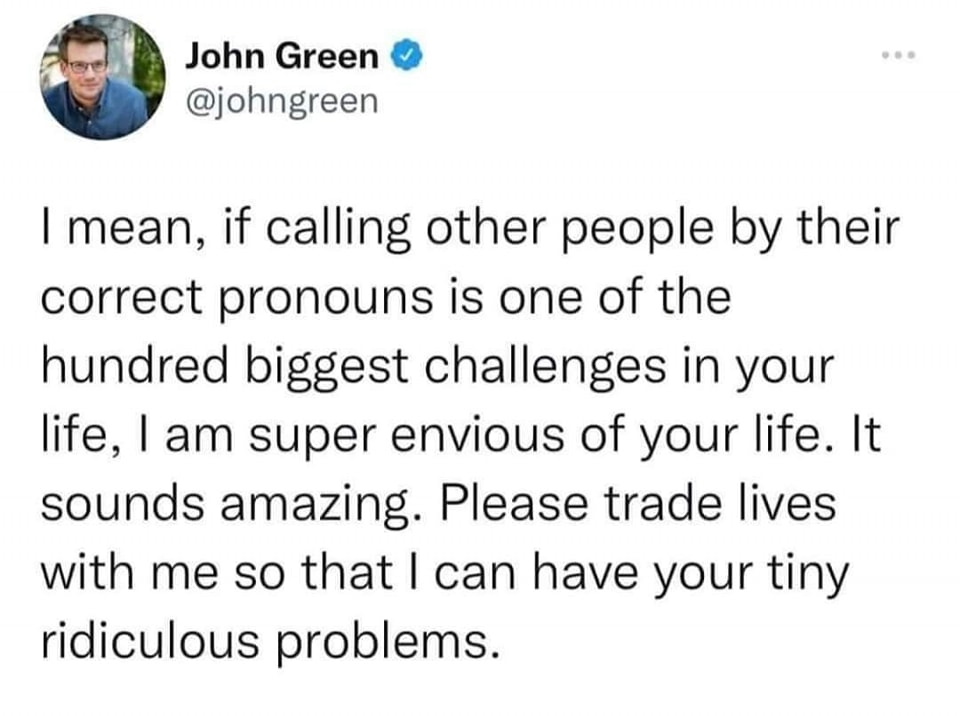this post was submitted on 28 Apr 2024
2 points (66.7% liked)
Microblog Memes
5353 readers
2541 users here now
A place to share screenshots of Microblog posts, whether from Mastodon, tumblr, ~~Twitter~~ X, KBin, Threads or elsewhere.
Created as an evolution of White People Twitter and other tweet-capture subreddits.
Rules:
- Please put at least one word relevant to the post in the post title.
- Be nice.
- No advertising, brand promotion or guerilla marketing.
- Posters are encouraged to link to the toot or tweet etc in the description of posts.
Related communities:
- !whitepeopletwitter@sh.itjust.works
- !best_of_mastodon@sh.itjust.works
- !curatedtwitter@sh.itjust.works
- !curatedtumblr@sh.itjust.works
founded 1 year ago
MODERATORS
you are viewing a single comment's thread
view the rest of the comments
view the rest of the comments

As a person who learned English as a 2nd language, I would like it if you could transform the language into gender neutral and end this insanity.
I still get classic genders wrong, this whole LGBTQ movement is confusing me even more when I'm trying to type/speak.
Wait until you learn languages with gendered articles
The thing about grammatical gender is that it doesn't really have much to do with sex or gender identity. In German, for instance, 'mädchen' (girl) is neuter. Gender in French is 98% assigned based on the pronunciation of the three final syllables. In Danish, living things tend to be 'common gender' and inanimate objects tend to be 'neuter'.
It'd be more accurate to call it 'noun classes' than gender.
Well, as a German, I wouldn't agree. Generally, nouns describing men are masculine and nouns describing women are feminine. "Das Mädchen" is just an odd one out because it's the diminutive (always neuter in German) of "die Maid", which in turn is feminine.
Yes, this doesn't really apply to objects, but it mostly does for people.
Child - das Kind - grammatical gender: neuter. Referred to in context using the gender-neutral pronoun 'es' (it). The pronoun used correlates with the grammatical gender of the noun used, not the gender of the person referred to.
Eg Ein Kind lacht. Es hat etwas gesehen. (transl: A child laughs. He/she/they saw something.)
I know. But generally, the gender of the noun describing a person correlates with the gender of the person described strongly.
Ok but my point is that when it doesn't correlate, it becomes clear how grammatical gender is independent from the person's gender.
It becomes even clearer when you consider all nouns by definition have a grammatical gender - inanimate objects, abstract concepts, etc, even though the thing described clearly doesn't have a gender. Eg die Tür ist offen. Ich schliesse sie. (transl.: the door is open. I close it.) 'Sie' being the female pronoun used to refer to the grammatically female door.